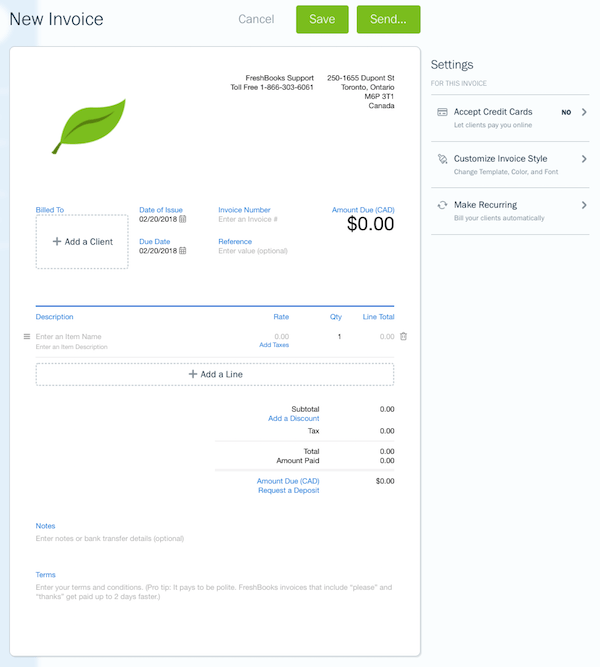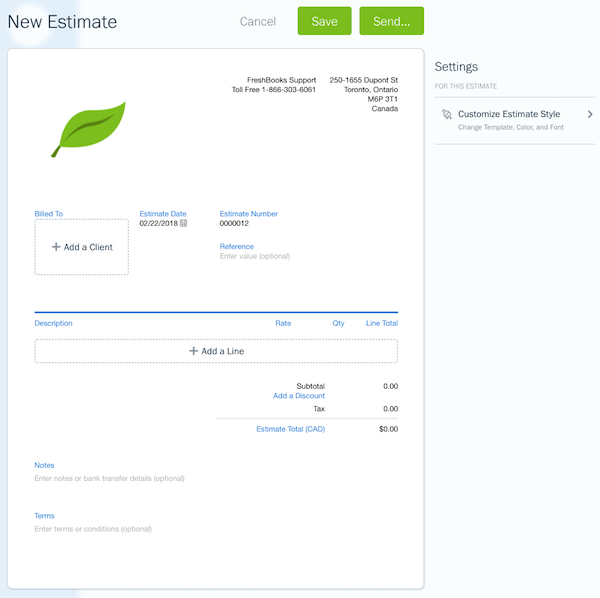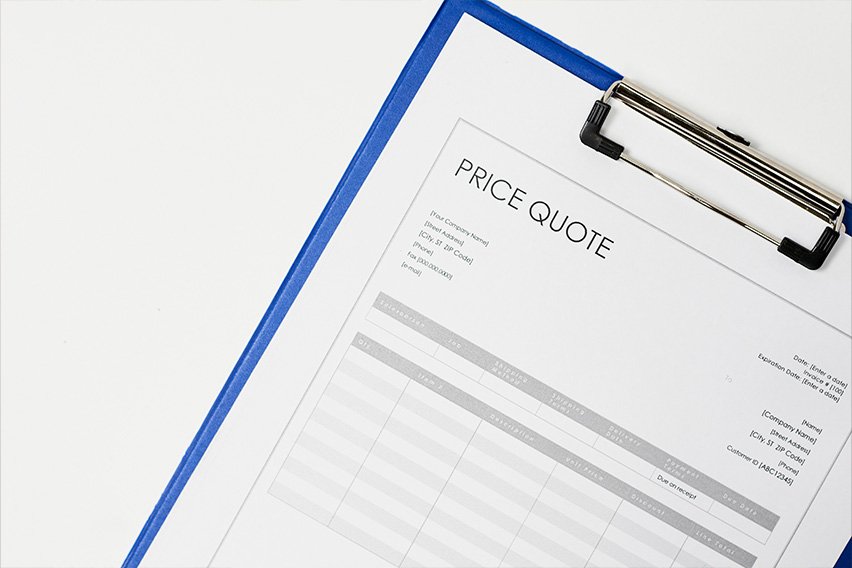What's a Job Estimate? A Primer for Small Businesses

A job estimate is a document that approximates how much a project will cost. The estimate will list the services you’ll provide, timelines and dates of completion, what isn’t included and of course the cost of each service plus any materials you need to do the job. An estimate helps your client budget for your project, according to FreshBooks.
In this article, we’ll cover:

What Is a Job Estimate?
A job estimate is a document that covers what services you’ll provide for a project and approximately how much they’ll cost.
A job estimate is intended for a client. It helps the client budget by providing timelines and costs. It also helps a small business owner plan for a project.
Estimates include the following details:
- What the project will include (project scope)
- What the project won’t include (exclusions)
- The services you’ll provide
- How much the services will cost
- The cost of any materials required
- Quotes from other suppliers, if needed
- Completion dates and timelines
- Any other terms of business
Before a small business drafts a job estimate, they will talk to the client about his or her needs. Estimates may change as a project progresses and things change. For example, a client may ask a copywriter for SEO-optimization mid-project, which will increase costs.
A job estimate helps a small business manage the expectations of their customers. It’s important to make a job estimate before each new project, even with existing clients, so the client knows exactly what to expect (and what not to). You can also ask the customer to sign and date the estimate.
Job estimates should be detailed enough so a client has a thorough understanding of what a project will require but not so much detail that the client is confused.
For example, a woman contacts a painting company and requests a paint job cost. She wants the exterior of her house repainted. The company will send her an estimate detailing the cost of labor and materials plus when the job will be done. They may specify they will not be painting the detached garage.
A job estimate can be drawn up using a job estimate app, accounting software or a free Word, PDF, or Excel template–which we cover in-depth in this article.
People also ask:
- What Is the Difference between an Invoice and an Estimate?
- What Is the Difference between an Estimate and a Quote?
What Is the Difference between an Invoice and an Estimate?
An invoice is a bill for goods or services and an estimate is a proposal for the provision of services or sale of goods. Both are documents drawn up by a business to show a client.
The difference is in timing. An estimate is sent to a client before you’re officially hired for a job. It details what the job or products will cost and doesn’t ask for payment.
An invoice is sent to a client after you’re hired for a job. It is a bill that asks for payment from the client and includes itemized costs.
For example, a couple asks a general contractor to replace the countertops in their home kitchen. The contractor sends the couple an estimate that says it will cost about $5000 to replace the countertops including labor and material costs. The couple signs and dates the estimate and asks the contractor to go ahead with her work.
After the contractor has done the job, she will send the couple an invoice for $5000 to request payment.
Here’s an example of an invoice:

Source: FreshBooks
And here’s an example of an estimate:

Source: FreshBooks
The two templates above may look similar but the invoice includes an “amount due” and a payment due date while the estimate has an “estimated total” instead.

What Is the Difference between an Estimate and a Quote?
A quote provides a fixed cost for a project while an estimate provides an approximate cost. Both are documents intended for a client.
The fixed price in a quote only applies to a certain time frame, as well. A quote might say: “Valid for 90 days.” A small business might use a quote instead of an estimate if the price of materials required for the project vary. For example, a construction company might use a quote because lumber prices can fluctuate.
On the other hand, an estimate’s project completion date and timeline are subject to change if circumstances change. A client can add to the project’s scope or an unforeseen problem can come up. It’s a more flexible document.
The downside of a quote for a small business is that once the client approves it, you have to stick to the prices included and do the work you promised to do. That means it’s important to ask the client first exactly what they want and detail exactly what you will and won’t provide and when you’ll deliver the work. Our article on How to Write a Quotation offers valuable insights for crafting effective quotes
RELATED ARTICLES

 How to Estimate Remodeling Jobs: A Pricing Guide
How to Estimate Remodeling Jobs: A Pricing Guide What Is a Price Quote? An Introduction for Small Businesses
What Is a Price Quote? An Introduction for Small Businesses What Is a Business Proposal? A Simple Definition for Small Businesses
What Is a Business Proposal? A Simple Definition for Small Businesses 7 Simple Steps to Write a Business Proposal | A Guide for Small Businesses
7 Simple Steps to Write a Business Proposal | A Guide for Small Businesses Create a Quote in 8 Simple Steps: A Guide for Small Businesses
Create a Quote in 8 Simple Steps: A Guide for Small Businesses How Can You Convert an Estimate to an Invoice
How Can You Convert an Estimate to an Invoice